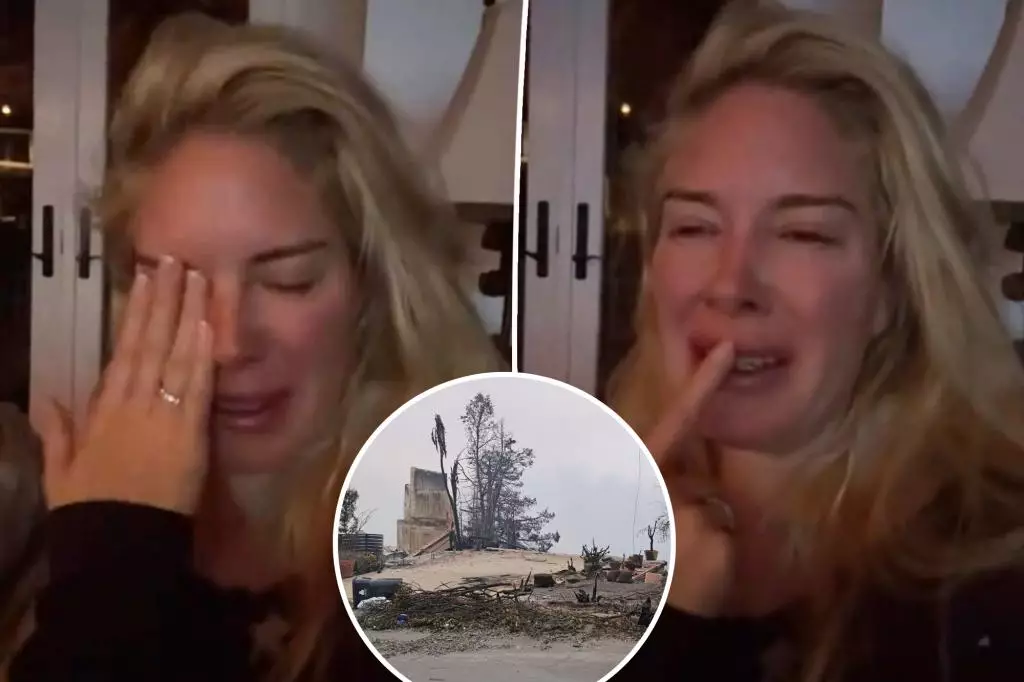Recent wildfires in Pacific Palisades have left many families, including that of reality television star Heidi Montag, grappling with the devastating aftermath of losing their homes. In a tearful TikTok video shared with her followers, Montag expressed her overwhelming sorrow over the destruction of her family’s residence, emphasizing her gratitude that they were safe. However, the emotional toll of losing their belongings was evident as she lamented the irreplaceable memories and the physical space that held their life together. “I wish I could have gone back and got more,” she shared, reflecting a common feeling among fire survivors who simultaneously experience relief at their safety and profound grief for their lost possessions.
The public often views celebrities as distant figures, shielded from life’s challenges due to their wealth and fame. Yet, Montag’s raw expression of vulnerability blurs that perception, revealing that no one is immune to the whims of nature. The reality of losing a home—an anchor for personal history, security, and emotional wellbeing—is a deeply human experience. Montag’s emotional distress, compounded by her two-year-old son Ryker’s attempts to comfort her, showcases the shared family struggles that transcend societal barriers. “Life is so crazy,” she articulated, encapsulating the unpredictable nature of existence itself.
Montag’s situation is not unique, as multiple celebrities are affected by the recent wildfires, including notable names like Mandy Moore and Eugene Levy. The fire has not only ravaged individual homes but has also disrupted entire communities, highlighting the interconnectedness of experiences during communal crises. This tragedy serves as a stark reminder of how quickly life can change, regardless of social status. The destruction of properties valued in millions—like that of Miles Teller and Adam Brody—underscores the widespread impact of wildfires, which know no boundaries or socioeconomic barriers.
In the face of adversity, Montag and her husband, Spencer Pratt, have also displayed a sense of resilience. Pratt’s lighthearted take on a heavy situation, humorously describing himself as “in shock” while sharing a snippet of his snack preparation, offers a glimpse of how people cope with grief and uncertainty. His candid approach, although “unhinged,” provides a window into their attempts to navigate this personal disaster while maintaining some semblance of normalcy.
Gratitude, even in despair, is vitally important, as Montag showcased by thanking those who offered support during this challenging time. The strength of community should not be underestimated, particularly during disasters that necessitate collective resilience. As awareness grows around the devastating effects of such natural disasters, it becomes vital for society to engage in dialogue about climate change, emergency preparedness, and community support systems designed for recovery. It is through these discussions that healing can begin, encouraging those affected by the wildfires to find solace not only in memories but also in the solidarity of those around them.
The emotional journey through loss and grief may feel arduous, but it is essential to recognize the underlying hope and connectivity present in those moments of tragedy. The experiences of individuals like Heidi Montag highlight the essence of resilience, urging us to come together as a community to face the challenges ahead.

